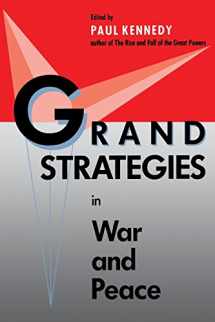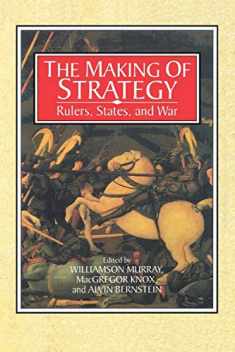
Grand Strategies in War and Peace
Book details
Summary
Description
In this important book, eminent authorities discuss how various nations have sought to integrate their political, economic, and military goals in order to preserve their long-term interests in time of war and peace. Edited and with two chapters written by Paul M. Kennedy, the author of The Rise and Fall of the Great Powers, the book analyzes classic examples of European garand strategies and offers incisive advice on the proper balance of priorities that should be carried out by the United States today.
The book begins with a chapter by Kennedy that shows how the concept of grand strategy has broadened from a preoccupation with battlefield operations to a consideration of such factors as the management of national resources, the vital role of diplomacy, and the willingness of the general populace to support the burdens of war or the cost of large defense forces in peacetime. In succeeding chapters John Hattendorf, Michael Howard, and Eliot Cohen analyze British grand strategies in the War of Spanish Succession and the two world wars. Arther Ferrill, J. H. Elliott, Dennis E. Showalter, Douglas Porch, and Condoleeza Rice then discuss grand strategy in the Roman Empire, imperial Spain, Germany, France, and the Soviet Union.
The book concludes with reflections by Kennedy on American grand strategy today and in the future. He argues that America must avoid nuclear war, create armed forces flexible enough to deal with a variety of possible fighting contingencies, preserve its alliance system, and institute serious measures to reverse the economic and social trends that have weakened its preeminent position in the world. In other words, says Kennedy, America must maintain a reservoir of productive, financial, technological, and educational strength to be in a good position to meet the unpredictable and turbulent world of the early twenty-first century.


We would LOVE it if you could help us and other readers by reviewing the book
Book review




